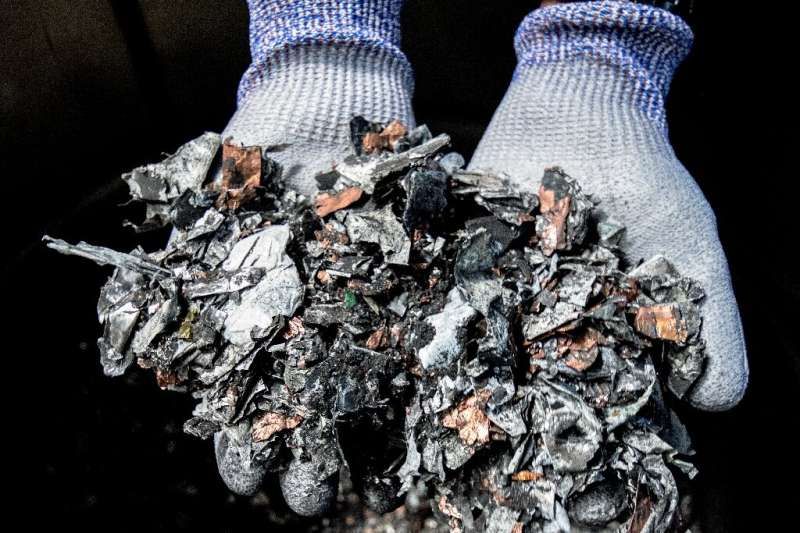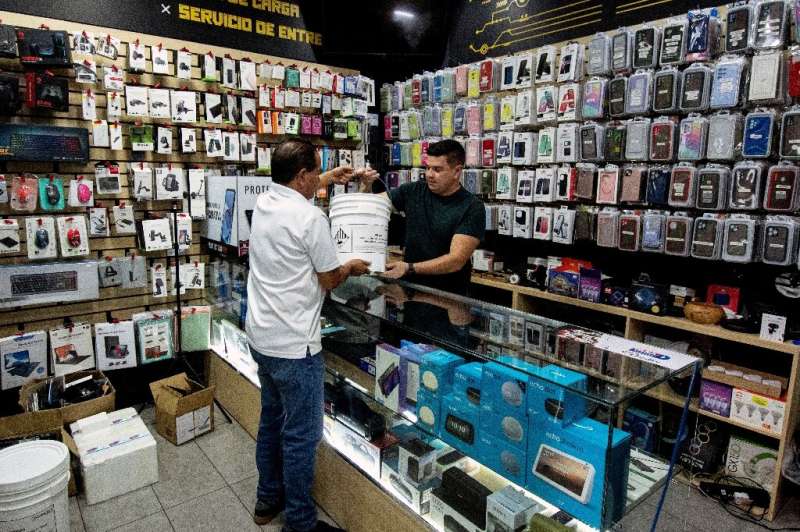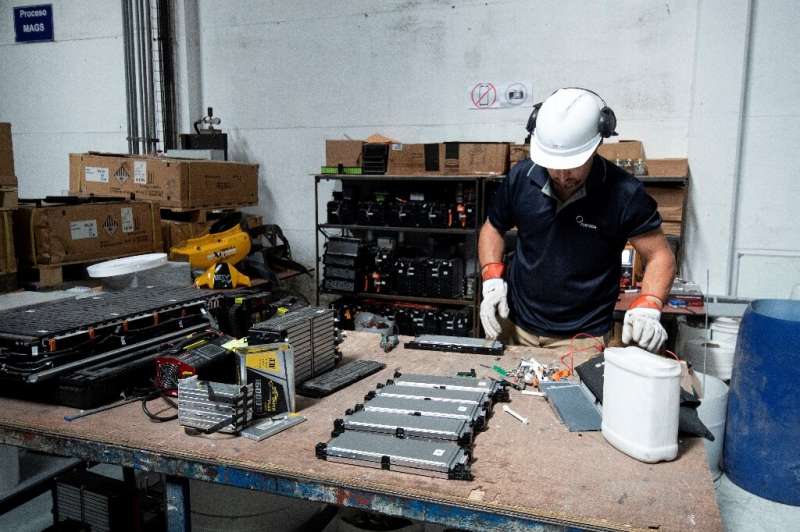Fortech's minerals are sourced from 1,500 tons of used batteries thrown away every year in Costa Rica alone.
Costa Rica, a country where open pit mining is banned, has become a leader in the extraction of heavy metals such as lithium—not from the Earth, but old batteries.
The Fortech recycling factory which opened nearly three decades ago in Cartago about 27 kilometers (17 miles) from the capital San Jose, is referred to by its staff as an "urban mine."
For the last six years, it has focused on extracting lithium contained in rechargeable batteries used in everything from mobile phones and laptops to electric cars and solar panels.
Millions of batteries are discarded every year.
While the battery casings take about 100 years to decompose, the often toxic heavy metals inside never do.
For Fortech, this presents a proverbial gold mine, and for our planet, perhaps a lifeboat.
"We now know that waste does not exist. We know it is a resource that can be used again," Fortech managing director Guillermo Pereira told AFP.
"It's important to break paradigms," added the 54-year-old, who with his son Francisco, 25, created a new method for extracting metals from used batteries.
"The world needs a circular economy" that recycles precious primary materials rather than sourcing new ones, said Pereira.
Spent batteries are collected in malls, electronics stores and electric vehicle sales points.
'White gold'
Unlike lithium mined elsewhere in conditions often harmful to the environment, workers and local populations, Fortech's metals are taken from 1,500 tons of used batteries discarded every year in Costa Rica alone, according to his son, the company's project manager.
They are collected in malls, electronics stores or electric vehicle sales points.
Lithium, dubbed "white gold" or the "oil of the 21st century," has seen its price explode on the global market from $5,700 per ton in November 2020 to 60,500 dollars in September 2022 due to electric cars replacing their polluting, gas-guzzling forerunners.
But lithium production plants consume millions of liters of water and can be harmful to the environment.
Obtaining lithium from recycling batteries expels only a quarter of the planet-warming CO2 that comes with mining it, according to Fortech chemist Henry Prado.
Recycling also saves the planet of the environment pollution caused by the "usual disposal method" of lithium batteries, which is often simply to dump them, he added.
According to the American Chemical Society, as little as five percent of the world's lithium-ion batteries are thought to be recycled.
Only about five percent of the world’s lithium-ion batteries are thought to be recycled.
'Pioneer'
At Fortech, collected spent batteries are placed on a conveyor belt that feeds them into a crusher.
The waste extracted in this way is then transformed into a mix of cobalt, nickel, manganese and lithium known as "black mass."
These metals comprise about 57 percent of each battery—the rest is copper, aluminum, plastic and iron, all of which can also be recycled.
Fortech does not have the technology to further separate the individual metals in the "black mass," which it sells instead to factories in Europe to complete the process and manufacture new batteries.
According to the German development agency GIZ, Fortech has turned Costa Rica into "a pioneer in Latin America in the valorization of used lithium batteries."
© 2023 AFP

























